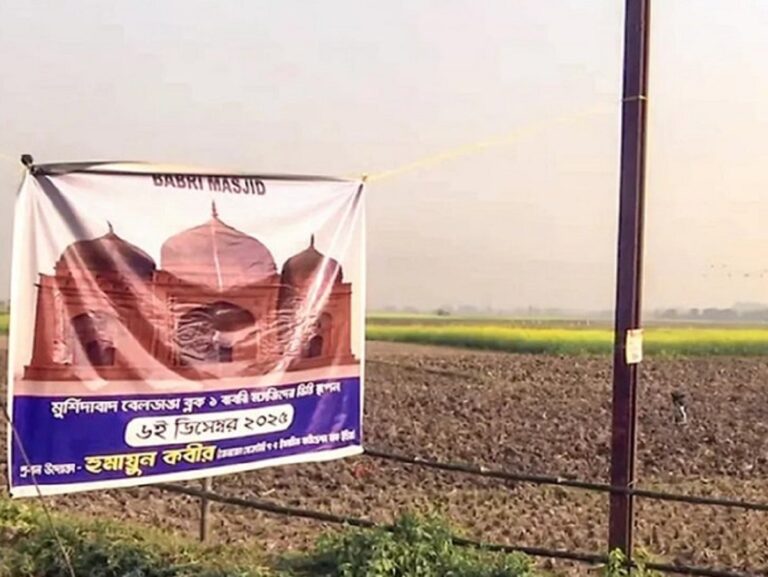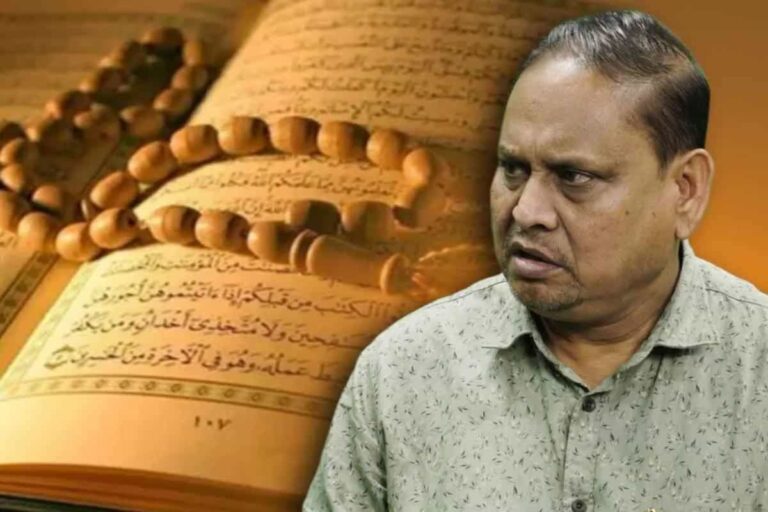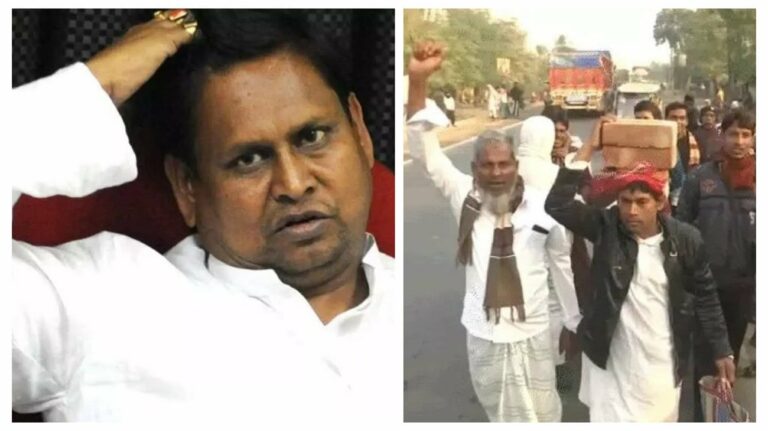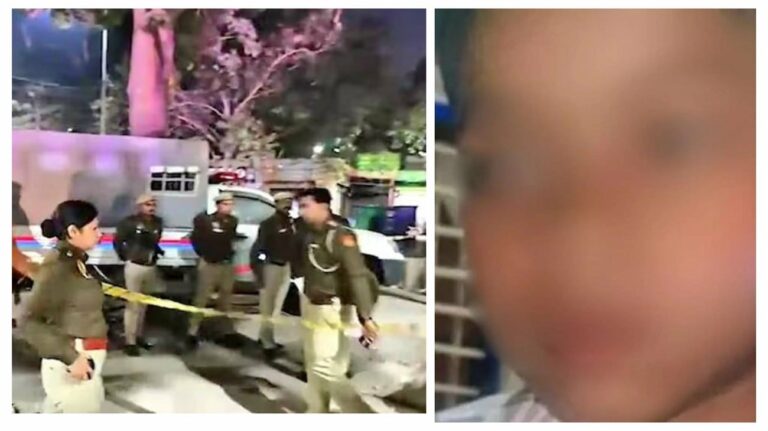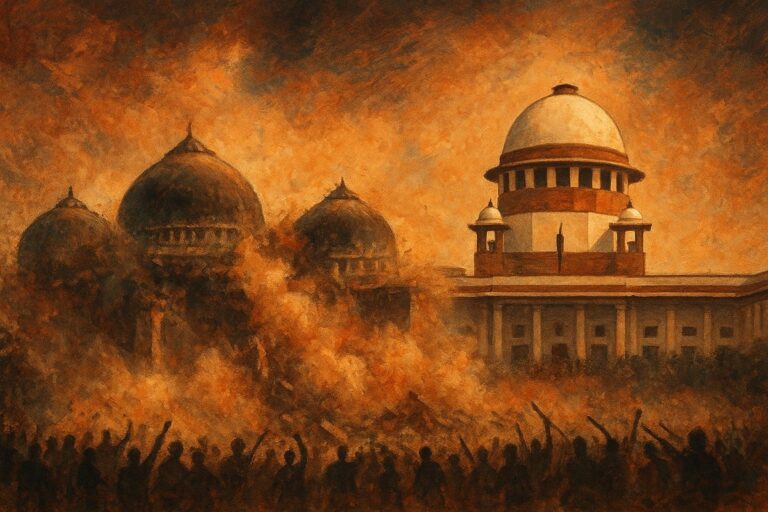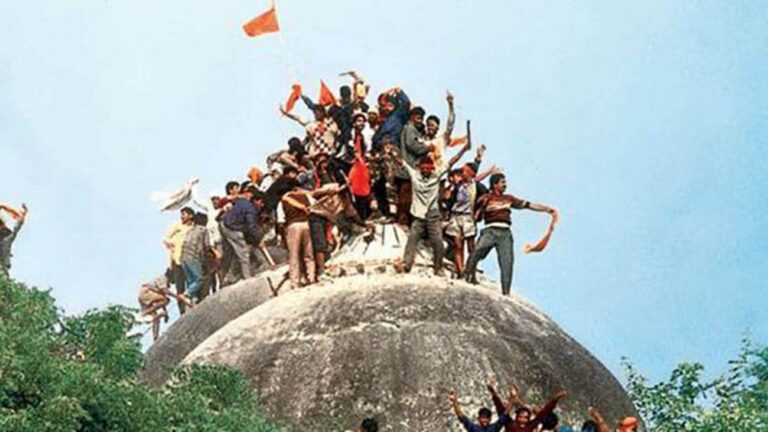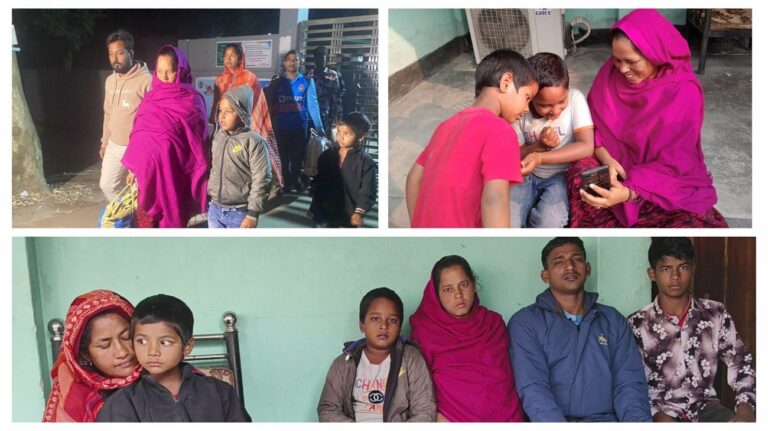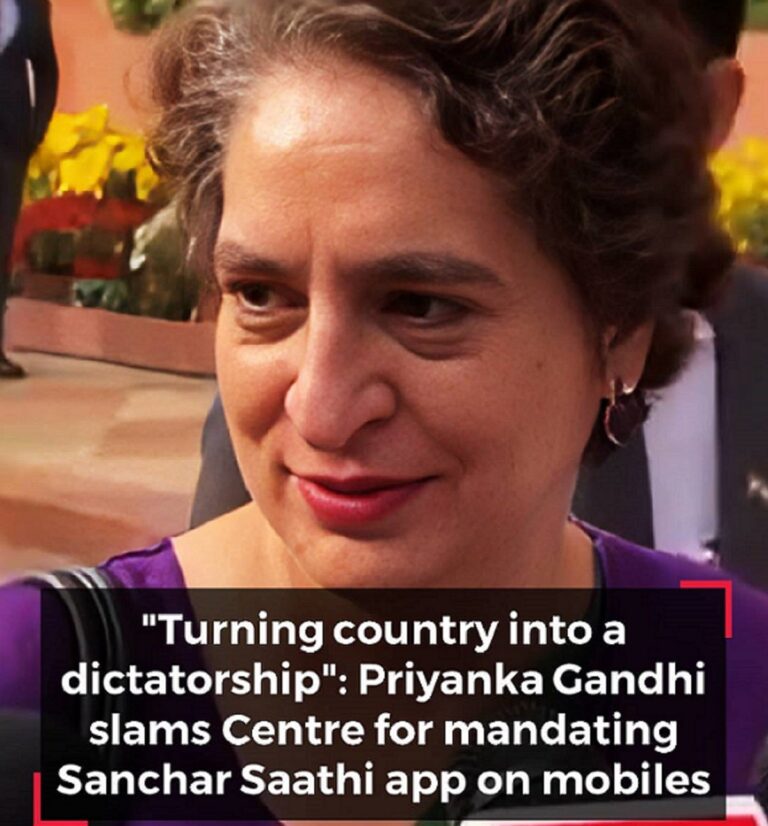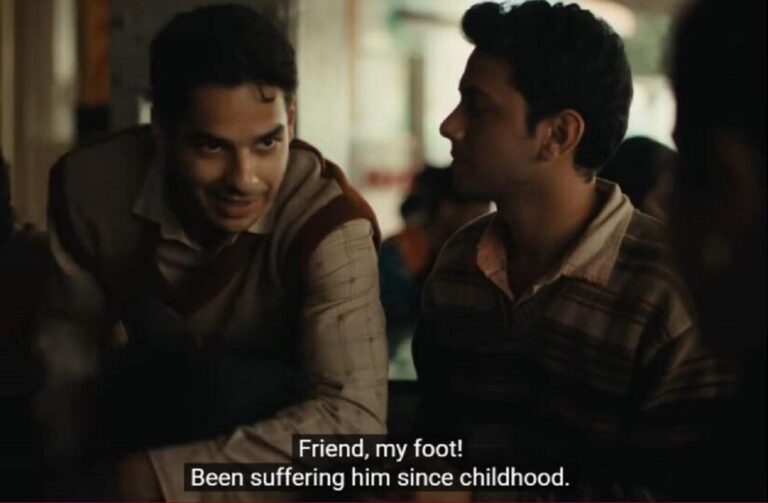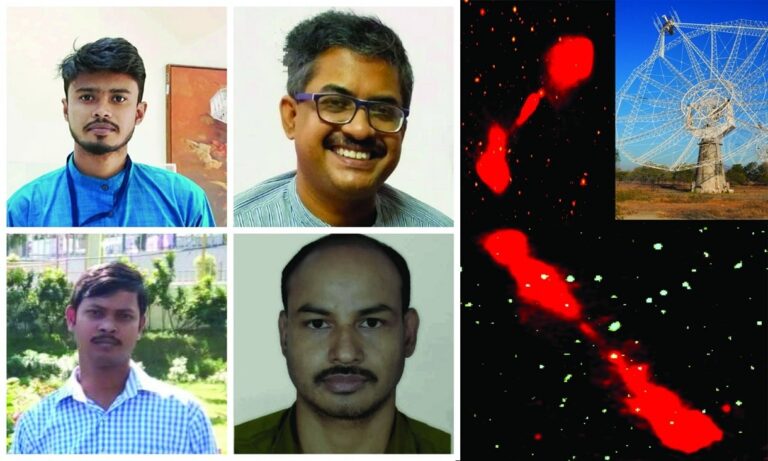There are dates in a nation’s history that refuse to stay confined to calendars. They do not fade away with passing years.Instead, they continue to echo, to haunt, and to remind. For India, 6 December 1992 is one such date. It was not a day when the skies darkened with natural disaster, nor did a foreign power breach the borders of the country. And yet, something irreparable was shattered. A structure of stone and faith may have fallen in Ayodhya, but in truth, a far deeper collapse took place in the psyche of India itself. The Babri Masjid lay in ruins, and with it, the belief of countless Muslims that this country, their homeland, would not always see them as equal inheritors of its soil.
The dust, as it rose from the crumbled dome, traveled beyond Ayodhya. It settled in the hearts of millions, whispering a chilling revelation: identity here is not merely lived, rather it is tested. Citizenship, that beautiful democratic promise of equality, suddenly felt conditional, fragile like pottery that could be cracked by the slightest tremor of majoritarian sentiment. The event taught Indian Muslims once more what history had shown them time and again that their place in the nation’s narrative is constantly negotiated, never fully granted.
The Collapse That Reshaped Citizenship: How Babri Rewrote Indian Muslim Identity
If one were to say that only a mosque was demolished that winter afternoon, it would be a lie told with cruel simplicity. What truly fell was trust — trust in justice, in secularism, in the fundamental idea that a nation’s greatness lies in treating its smallest minority with the largest respect. What fell was the quiet assurance families felt when they locked their doors at night, assurance that tomorrow would unfold like today, threatened. What fell was the certainty of belonging. And that fall did not end with the sound of bricks and beams hitting the ground. It continued, it intensified, it spread, not through physical ruins, but through an unseen architecture of fear.
The vocabulary of life changed. The word precarity — once a distant academic term — moved into the everyday reality of Indian Muslims. Precarity became the background noise to their citizenship: the knowledge that rights can slip like sand through fingers; that peace can be replaced swiftly with unrest; that safety is not stored in documents or constitutions, but in the unpredictable mood of the majority. Vulnerability too found its way into their breath, the vulnerability of existing as a suspect without committing a crime, of being reduced to a stereotype by news studios, of having one’s faith mistaken for defiance. These were not abstract ideas any longer, instead, they were as real as the fear rising in a mother’s heart each time her son stepped out with a beard, a cap, or a name too easily identifiable.
Identity markers, once symbols of pride, turned into warning signs. The call to prayer, a greeting of peace, a surname carrying lineage — all became possibilities of danger. A home purchased in a mixed neighbourhood became a question: Will the neighbours tolerate us? A child admitted to a school became silent prayer: Will she come home insulted or hurt? Even silence became tactical, not natural. And this silence, cultivated out of fear, gradually anaesthetized the vibrant, diverse presence that Muslims once held proudly in India’s public sphere.
But was 6 December 1992 an isolated wound, a sudden eruption of division? History answers otherwise. The decades that followed have borne witness to further violence — Bombay in 1993, Gujarat in 2002, Muzaffarnagar in 2013, Delhi in 2020. Each incident added another layer to the dread that Babri unleashed. Each riot assured the community that tragedy could recur, anywhere, anytime. Trauma, once birthed, does not remain still; it travels through bloodlines, embedding itself into new generations. Children grow up inheriting a grief they did not experience firsthand, yet deeply recognize.
A Timeline of Trauma: From Bombay to Delhi, the Riot Map That Echoes Babri
What could have been healed by justice was instead deepened by political convenience. The judicial process stretched across years — years during which memory was weaponized, history was rewritten, and the promise of secularism was trimmed and reshaped. When verdicts finally arrived, they delivered not closure but irony, the irony that faith could outweigh proof, that noise could overshadow principle. A structure that had already collapsed physically seemed to collapse again symbolically in the judgment halls, leaving Indian Muslims wondering whether the law they reposed faith in, believes equally in them.
Yet even more dangerous than legal ambiguity is the rewriting of history itself. The Babri Masjid, once a site recorded in heritage and memory, has been repositioned as a “disputed structure.” Libraries and textbooks have begun to soften, erase, rephrase. Memory is power: the community whose historical place is questioned eventually finds its present contested and future compromised. To confiscate memory is to confiscate identity. It tells people that you did not build here, you did not belong here, you are guests with overstayed welcome.
When Justice Withers and History Is Rewritten: The Battle for Memory and Rights
In these shifting sands of legitimacy, many Muslims have drawn their curtains tighter. They speak less. They pray discreetly. They avoid political conversations. They advise children to blend in, to compromise, and to not let identity become too visible. And visibility, the very essence of living in society, becomes a high-stakes gamble. When breathing freely feels risky, what remains of citizenship?
Islamophobia, a term once posited as Western, has found its Indian contours. It surfaces not only in violent mobs, but in subtle biases: landlords refusing rent, employers asking for “Hindu candidates only,” school bullies echoing rhetoric heard at home. Prejudice, when normalized, no longer shocks, it merely shrugs. And this acceptance of othering corrodes society slowly, silently, thoroughly.
Still, what would be a tragic misreading is to reduce Indian Muslims solely to victims. That would be an injustice to their history of resilience. They have survived empires and partitions, crises and caricatures. They have built monuments of learning and beauty — universities, poetry, music, architectural marvels. They have fought for India, dreamed of India, and loved India. Their belonging is not a temporary claim but a civilizational truth.
Their resistance continues, not always with slogans, but with scholarship, with art, with participation in democracy itself. Every Muslim student who excels in a classroom, every entrepreneur who builds a business, every author who writes boldly, every citizen who votes despite disappointment, each stands as a pillar of protest. Their assertion is simple yet powerful: We are here not by permission, but by right.
Resilience, Resistance, and the Future: Why Indian Muslims Remain Integral to India
But a question must rise, not from Muslims alone, but from every Indian who believe in justice: Why must patriotism be proven differently by different citizens? Why must a Muslim’s love for India be demonstrated repeatedly, while others inherit theirs unquestioned? Why does pain have to become performance before the nation listens?
These questions are not seeds of division.They are seeds of democracy trying desperately to grow in soil that is turning increasingly hostile. A democracy that cannot withstand questioning is already wounded. And a democracy that divides dignity is already weakened.
Today, as newer generations step into adulthood, they carry history on their shoulders. They are not weighed down by sorrow alone; they are energized by a desire to redefine their place in the republic. They are mapping out futures where identity need not be masked, where memory need not be debated, where citizenship is not negotiable. They dream not of separation but integration — integration built on respect, not assimilation enforced by fear.
Babri thus becomes both wound and warning. A wound that throbs each year when December arrives, pricking at the layers of suppressed grief. A warning that the foundations of a nation can crack if fairness is sacrificed. But Babri is also something else — a mirror. It reflects whether India remembers who it claimed to be: a place where every religion could live without fear, where constitutional promises would not be subject to majority approval.
A country is not weakened by its diversity; it is strengthened by it. The true measure of strength lies not in how proudly a nation displays its majority, but in how safely its minorities sleep at night. If India is to remain India — vibrant, inclusive, plural, it must protect those who are most easily scapegoated, most quickly misunderstood.
Even now, many Indian Muslims awaken each day with a quiet determination. They go to work, they build families, and they contribute to the nation’s economy, culture, and future. They continue to believe that the Constitution is alive, that justice may be delayed but not denied forever. Their perseverance is a testament to a profound patriotism, a patriotism without loud declarations, without conditions, without insecurity.
And so, 6 December remains not just a memory of destruction, but a challenge, a reminder calling out from the ruins: Can India uphold its own ideals? Can equality cease to be a fragile claim and become a lived experience for all? Can a scar become a lesson instead of a stigma?
History cannot be razed like a structure. It persists. It speaks. It demands acknowledgement. The Babri Masjid may no longer stand, but the narrative of coexistence that India prides itself on must stand taller than ever. For if inclusivity fails, the nation loses not merely a minority, rather it loses its founding vision.
Muslims were, are, and will remain a part of India, not as shadows or footnotes, but as co-authors of its story. Their presence enriches the collective soul of the country. Their rights, their safety, their dignity are non-negotiable pillars of the republic. And therefore, the promise must be renewed that the future will not resemble the ruins of that winter afternoon in Ayodhya.
Let the wound remind us of humanity. Let the scar insist on equality. Let the memory resist erasure. For the strength of a nation lies not in monuments or politics, but in whether every citizen can stand upright without fear. Let India choose to be strongest where it once faltered. Let Babri not be the source of endless sorrow, but the beginning of a future where no community must prove that they belong. Because the nation that protects its most vulnerable is the one that survives every storm. And the nation that honours all its children — equally, unquestionably, fundamentally — is the one that truly thrives.


